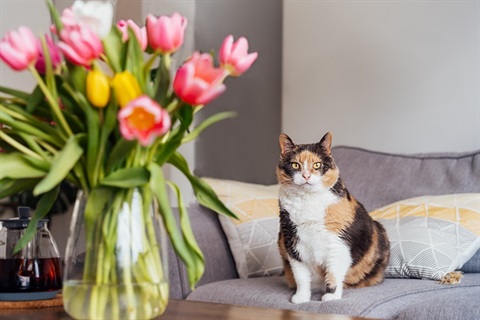Toxic plants for cats

We love the sights and scents of flowers in the home and garden, but some of the most popular blooms can be toxic to cats.
All types of lilies are particularly toxic, with every part of the flower, including water they sit in, being
dangerous. A cat can be poisoned just by rubbing up against the flower and then cleaning itself.
While cats are often cautious, natural curiosity can get the better of them. Keeping cats on their own property can reduce the risk of accidental ingestion/contact with harmful plants.
Owners should be aware of the types of plants that are toxic to cats, and that ingesting them can lead to everything from mild illness to death.
What to look out for
If your cat ingests a toxic plant, symptoms may include:
• Stomach upset
• Lethargy
• Excessive drooling
• Vomiting
• Diarrhea
What to do
If you think your cat has ingested any part of a toxic plant, seek vet assistance immediately.
In severe cases, toxic plants can be fatal. If possible, provide a sample of the plant to the vet.
Types of plants toxic to cats